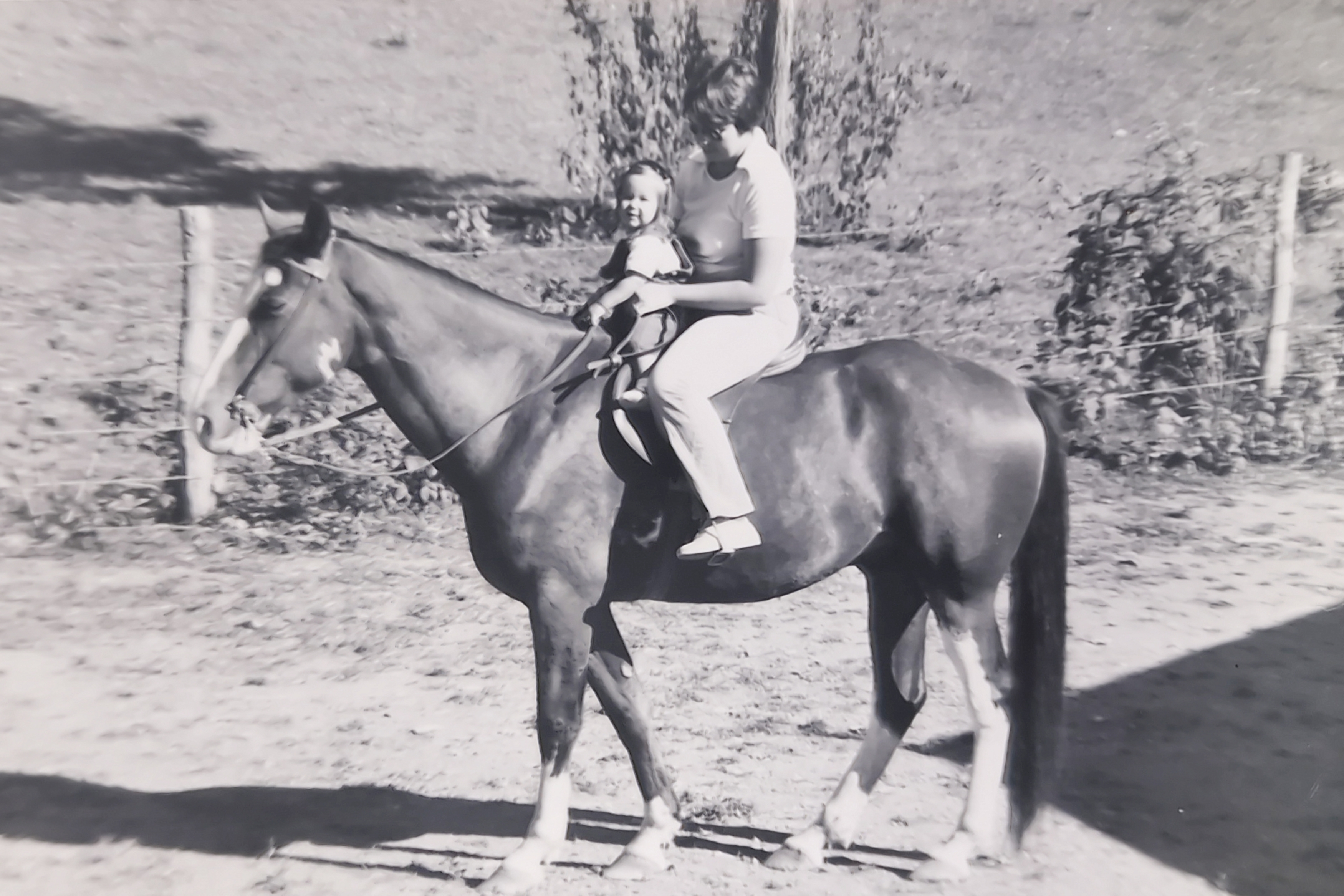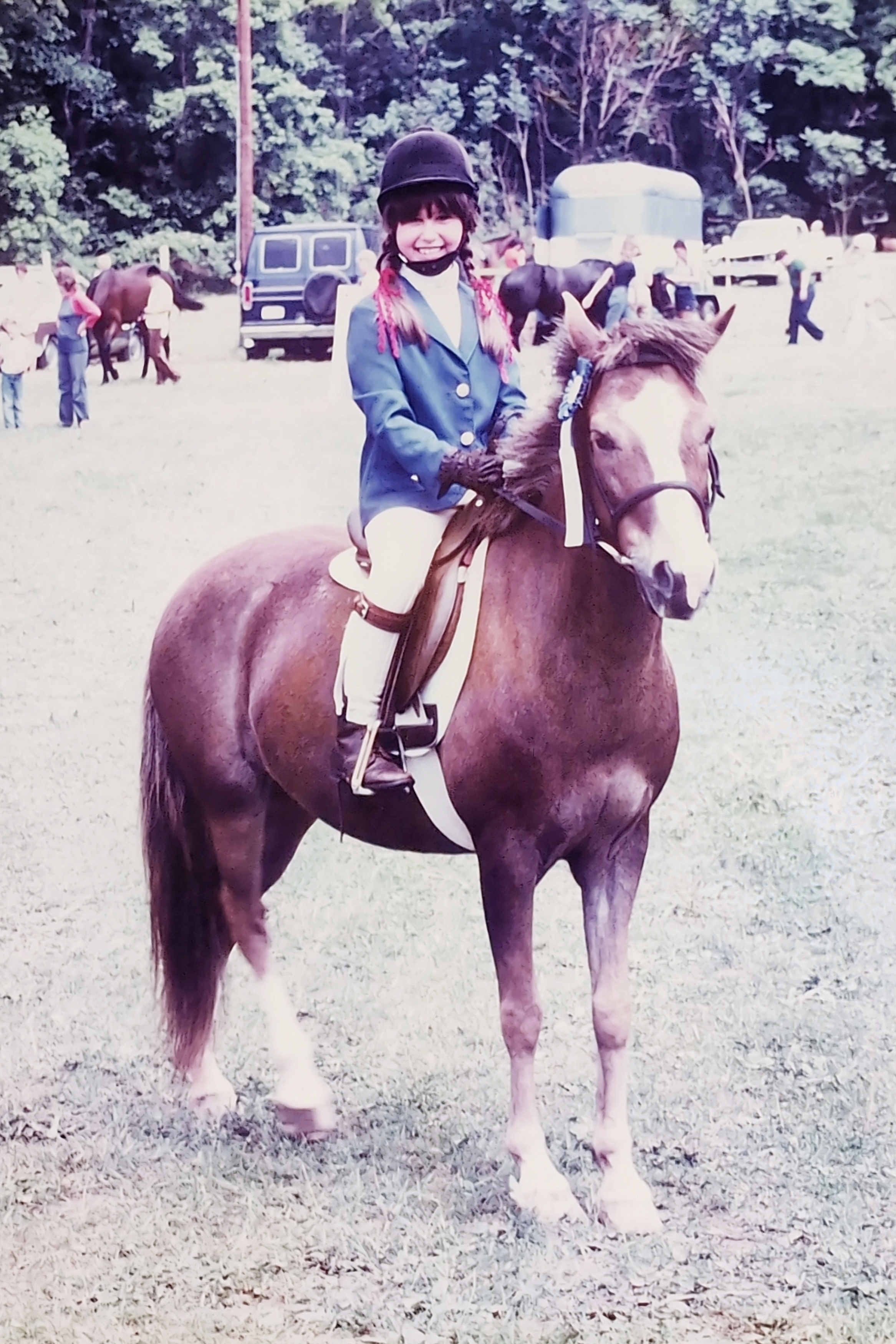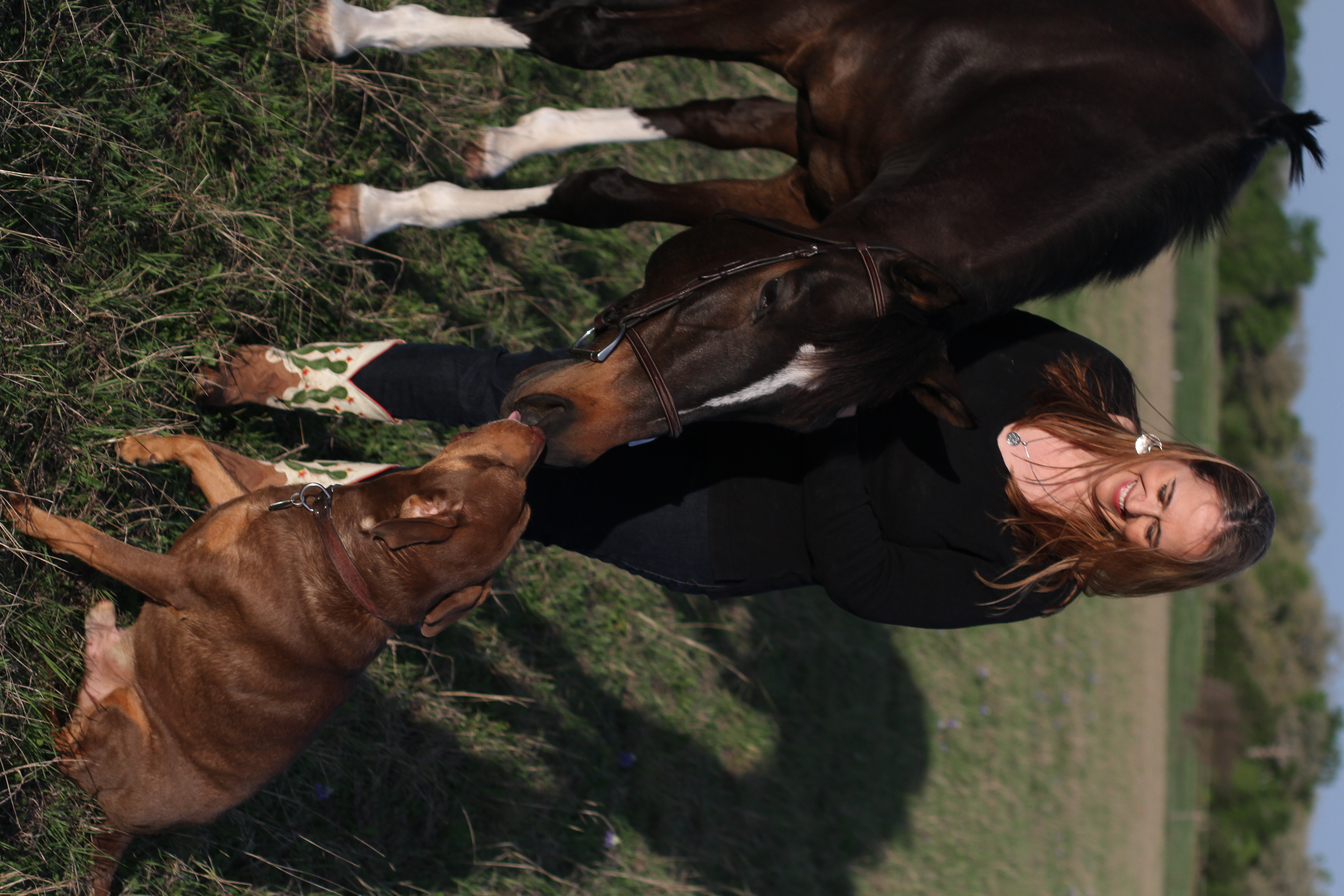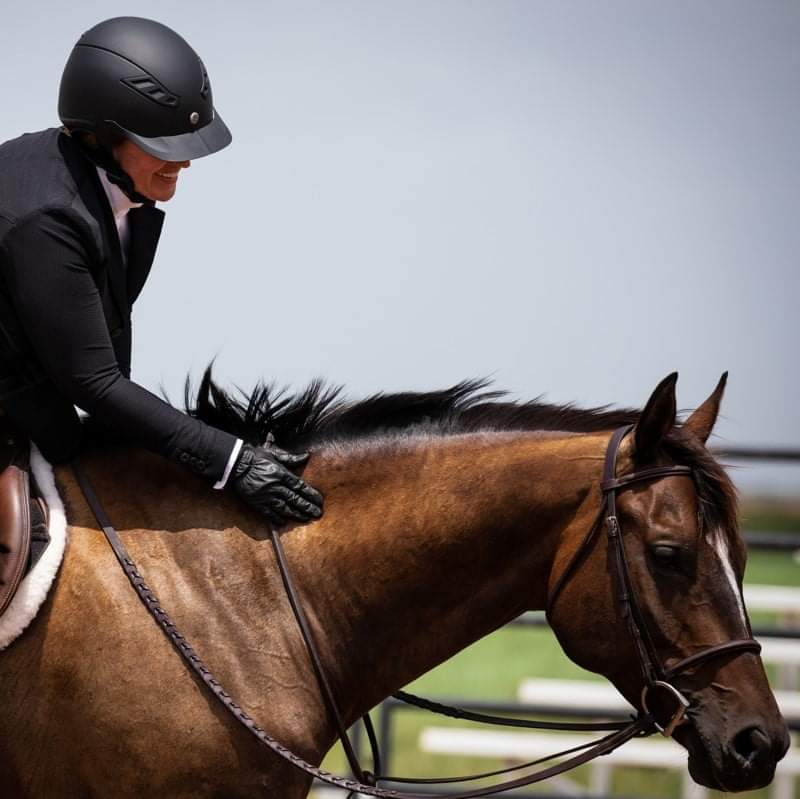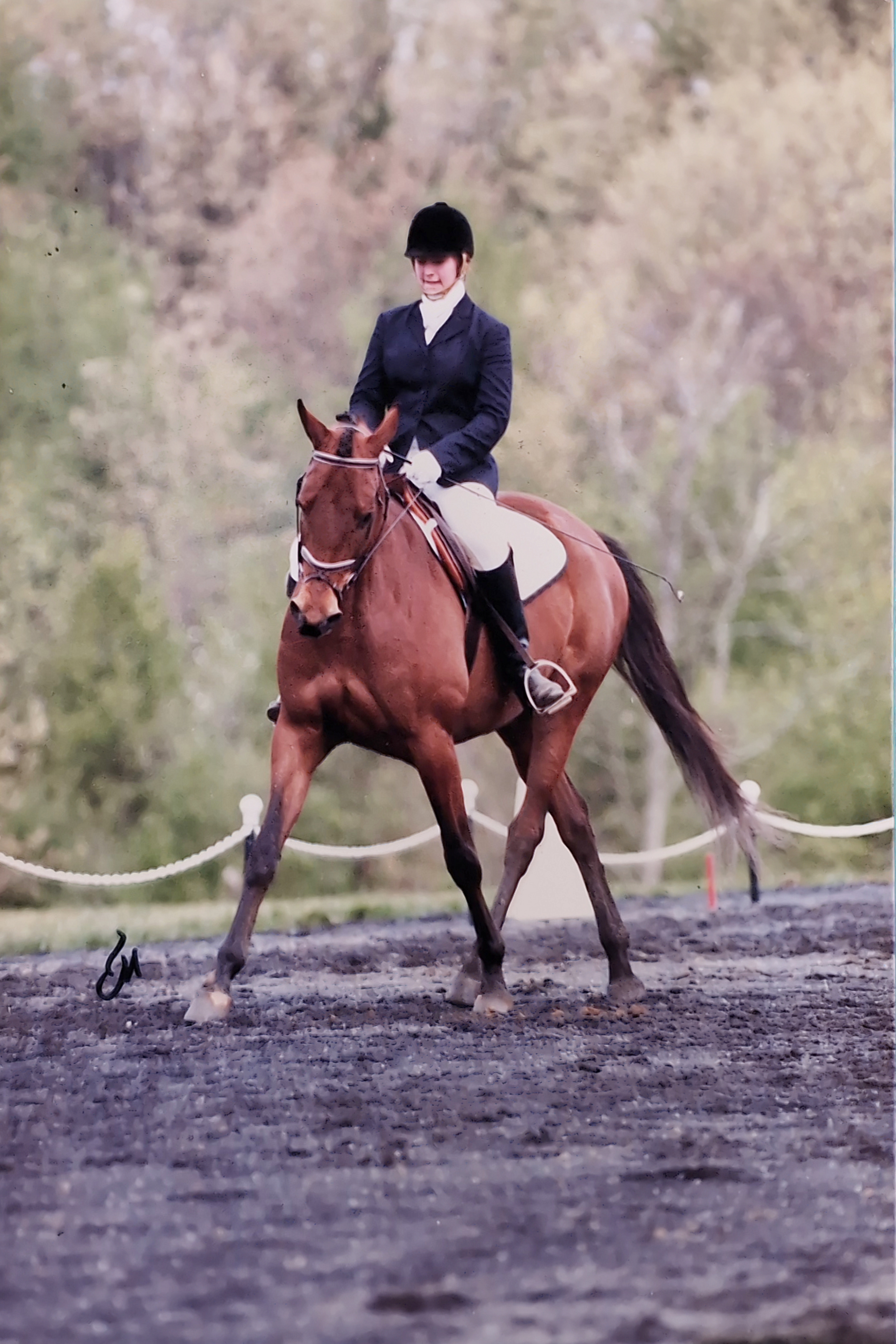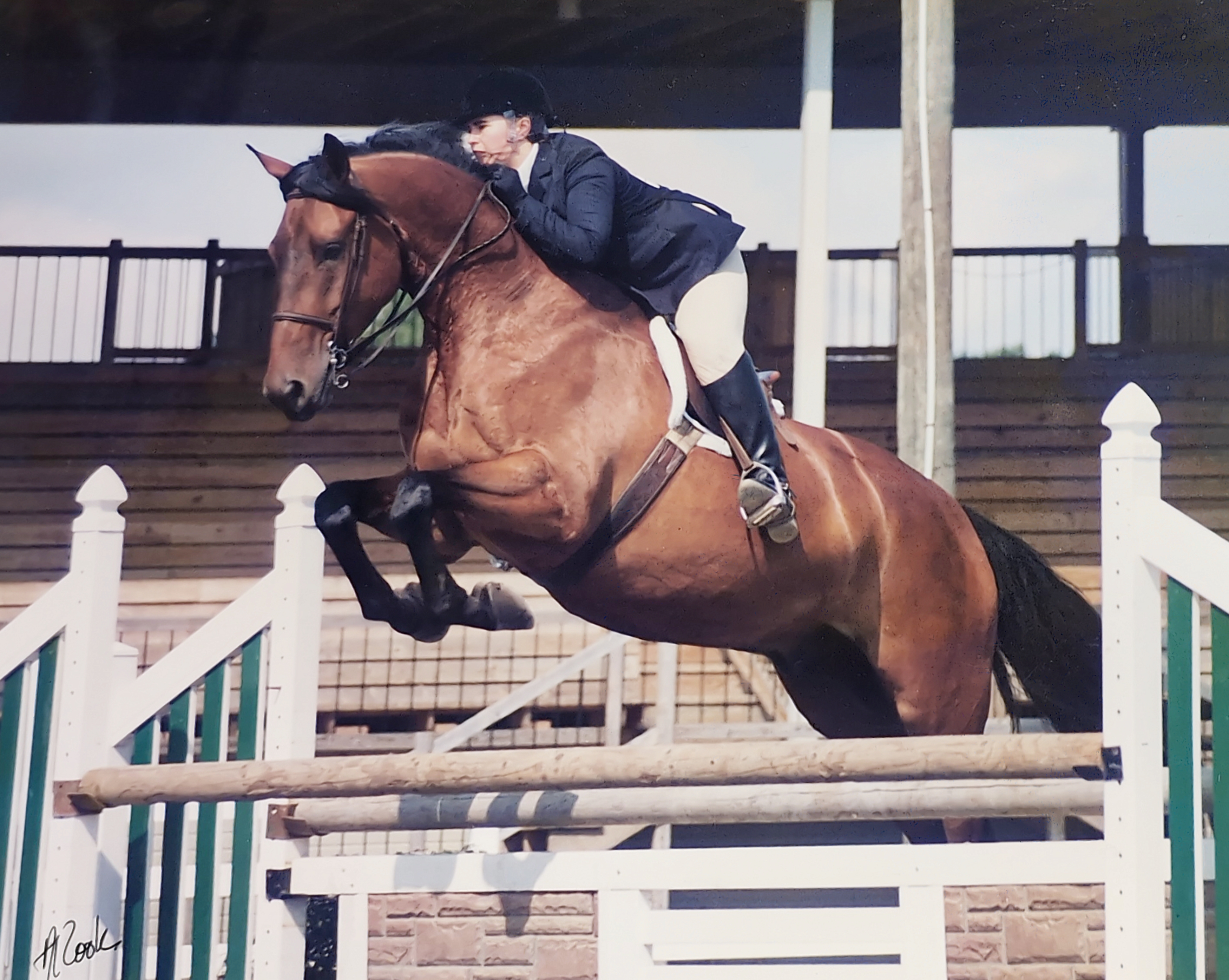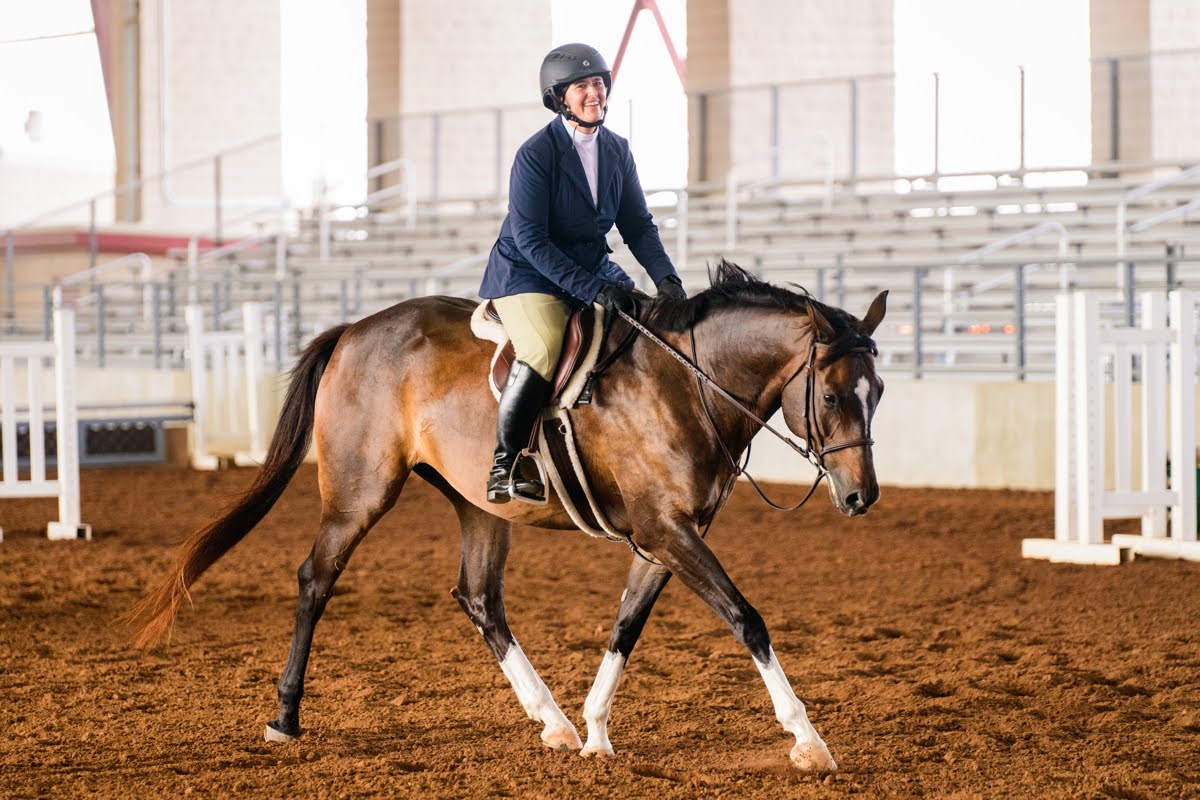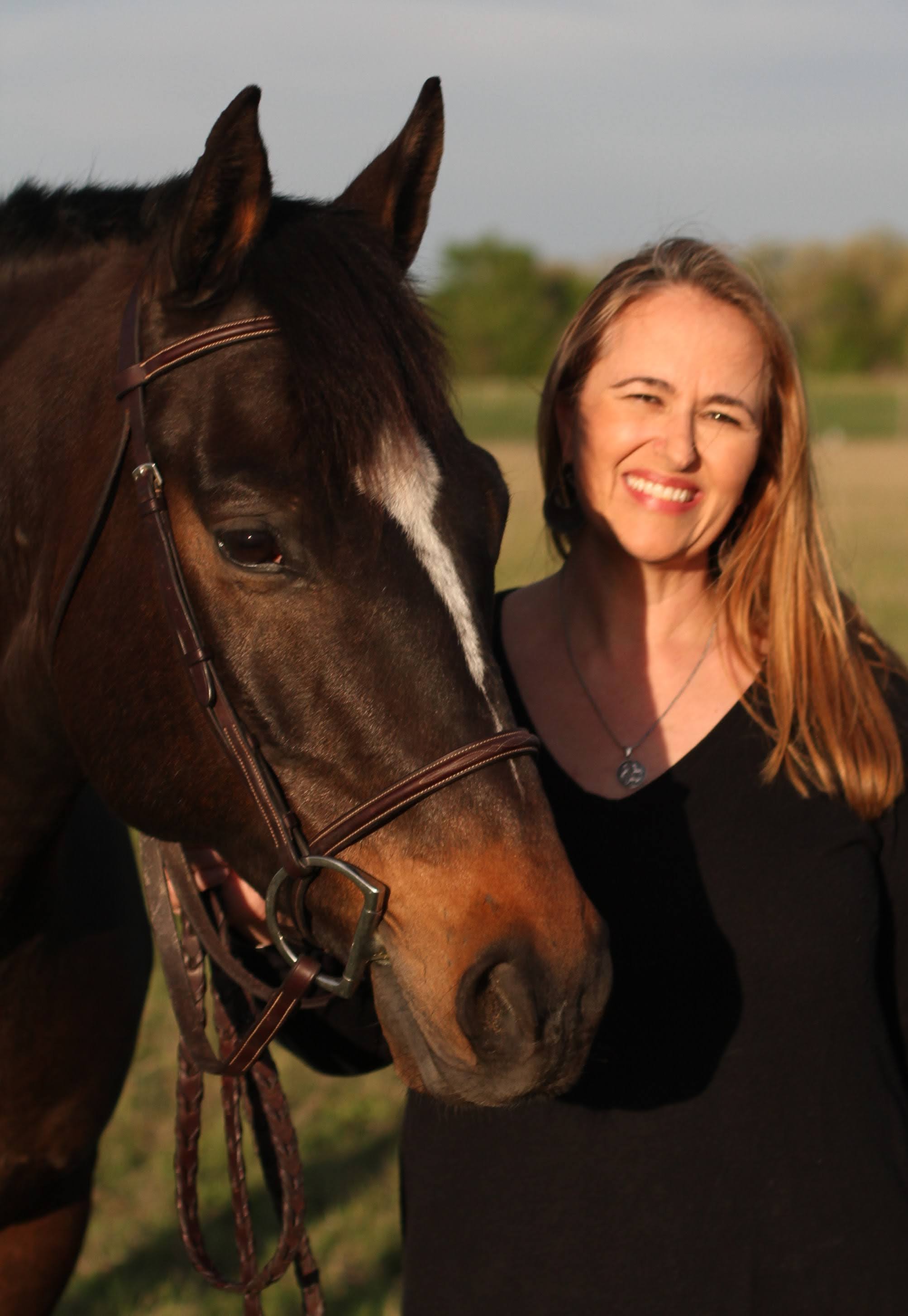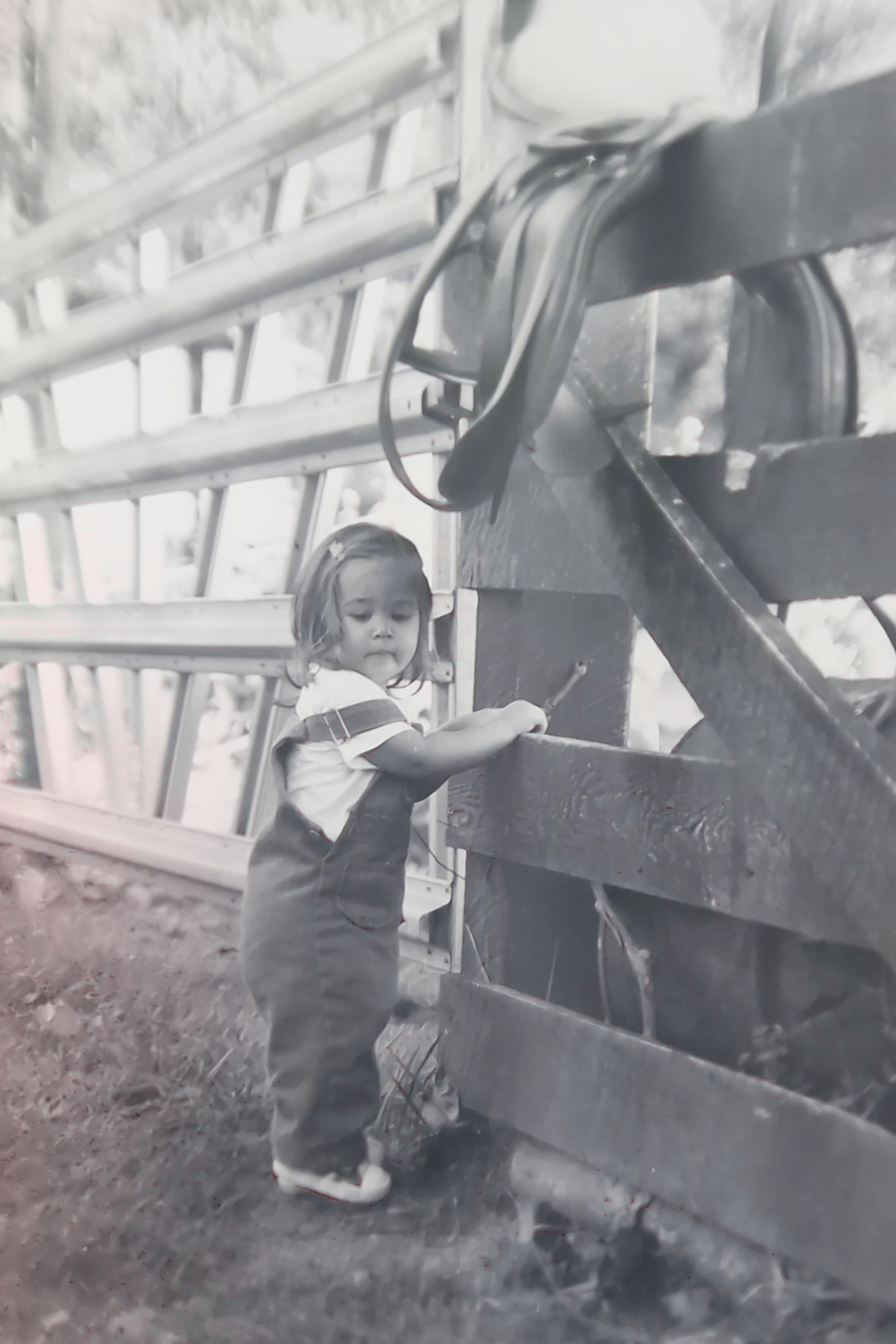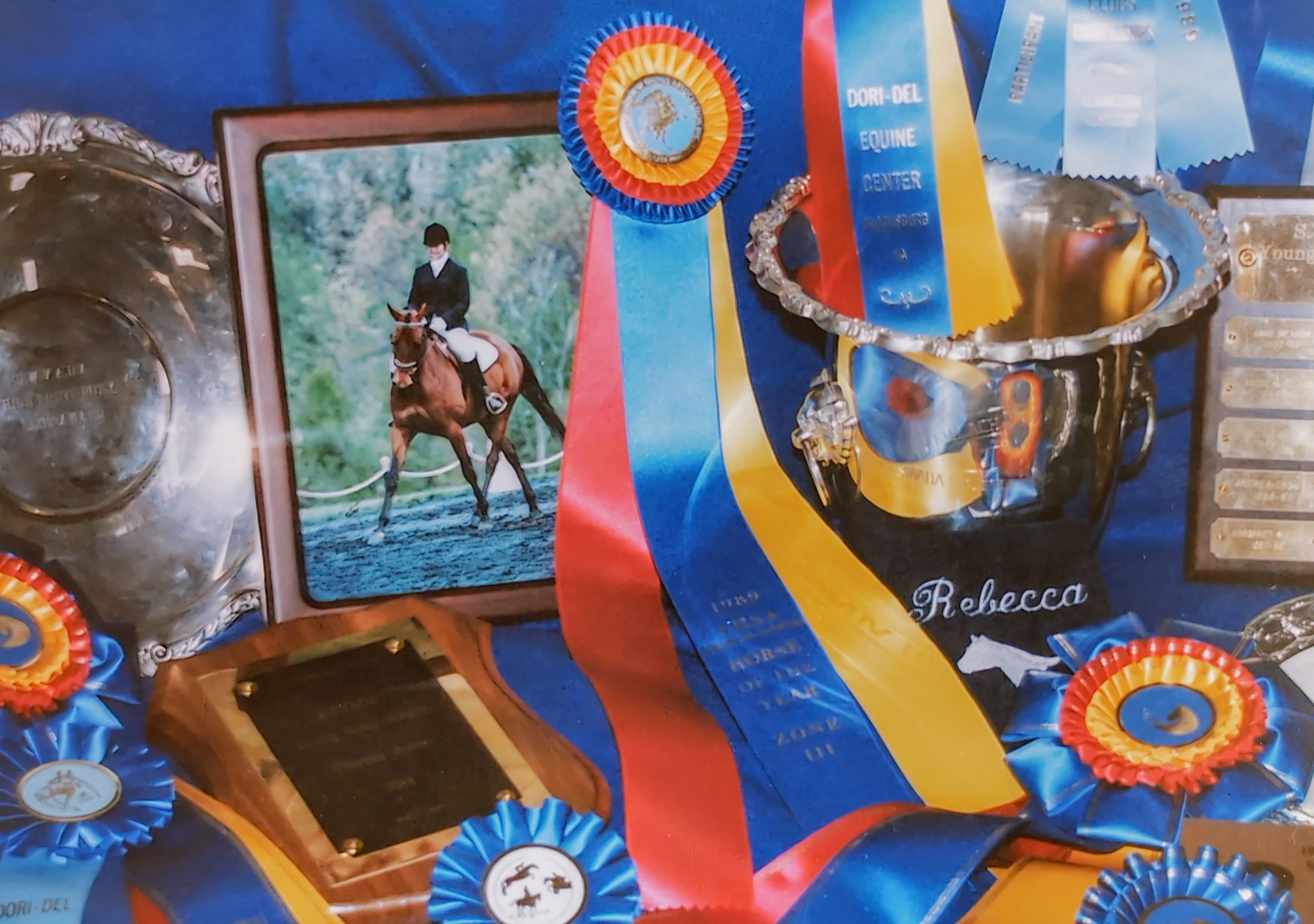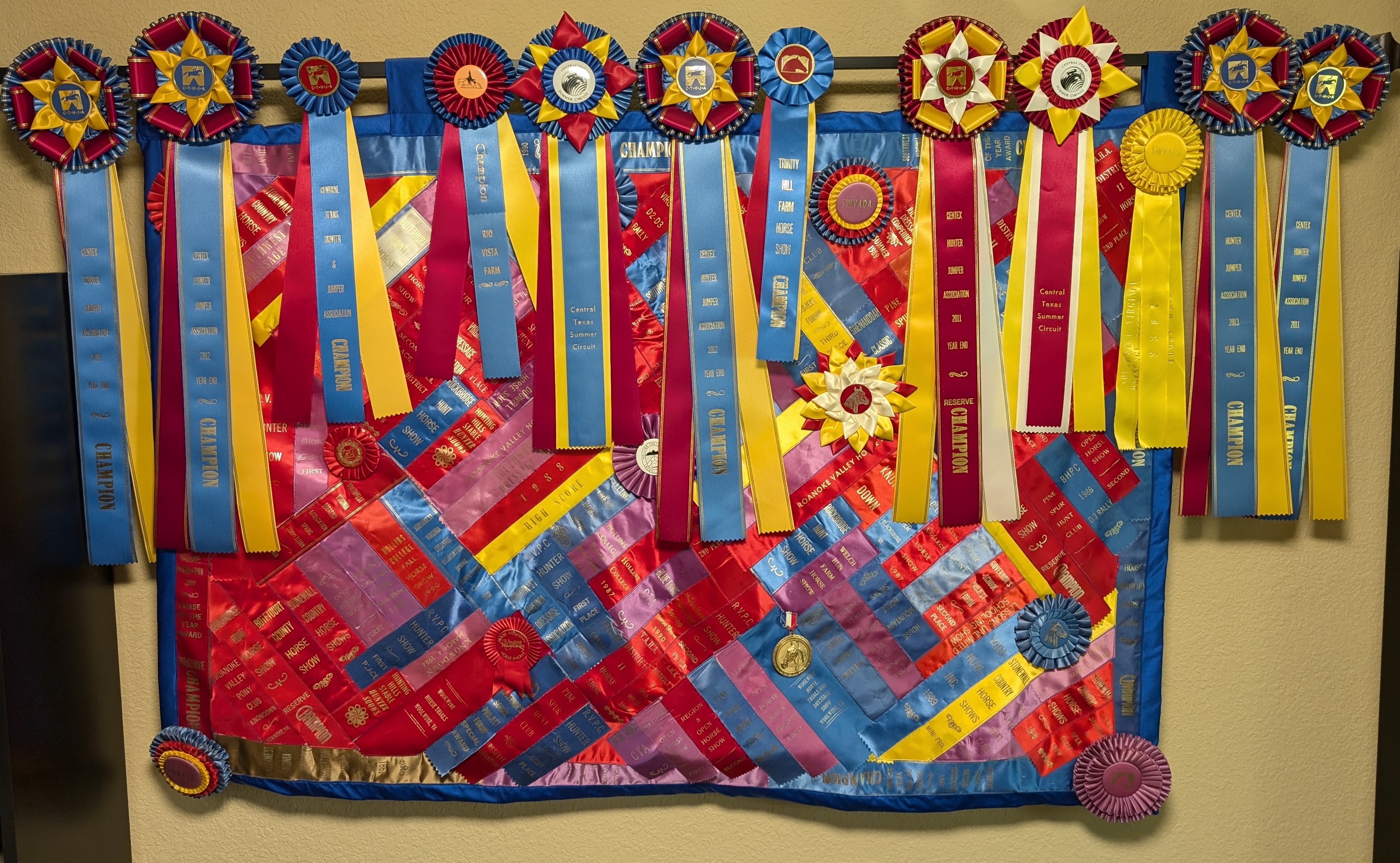Through Your Eyes
Alumna harnesses equestrian skills to equip humans to overcome trauma and serious illness
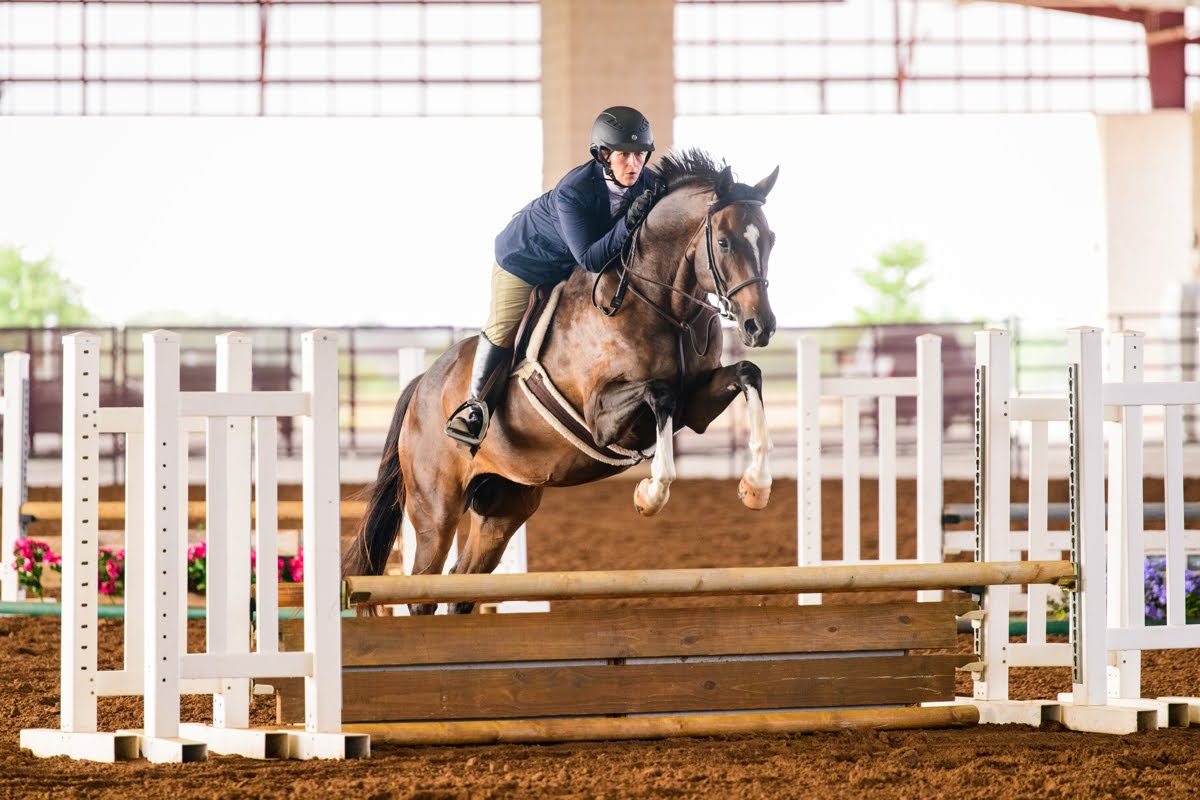
Theresa Jones Pugh, M'01 (Contributed photo)
This story was published in the winter 2024-25 issue of 12th & Marshall. You can find the current and past issues online.
"Bread may feed my body, but my horse feeds my soul." – Author Unknown
When Theresa Jones Pugh, M'01, has a hard day, her husband tells her, “You need some Teddy time.”
Teddy, it turns out, is Pugh’s favorite horse. Her love of all things equine harks back to when she was knee-high to a pony herself. Young Pugh began riding — and competing — at age 5. She still does. And now she works with horses who serve as invaluable four-legged therapists.
Pugh grew up in Botetourt County, Virginia, the daughter of a physician, Daniel R. Jones, M'74, and a horse-loving mom. Eventually, as a sideline, Pugh’s parents began breeding warm-blooded horses from Germany (as opposed to hot-blooded horses such as Arabians or Thoroughbreds).
Over the years, Pugh earned dozens of winner’s ribbons while competing on hunters and jumpers all over the country.
What is it about horses and their special bond with humans — and especially young girls? Speaking from her own experience, Pugh says working with horses fosters strength, confidence and self-reliance.
“A science kid” throughout her youth, Pugh chose to pursue medicine. She has spent two decades in family practice in Austin, Texas, and recently moved to a new practice, Resilient Health, also in Austin. She takes a functional medicine approach to wellness, autoimmune disease and gut health and has a special interest in Sjogren’s syndrome, a condition she has grappled with herself.
About nine years ago, Pugh found a new way to help people: with knowledge and skills gained as an experienced horsewoman.
A few years prior to that, she’d met the eventual founder and executive director of HorseLink, which provides a safe haven and renewed purpose for retired competition horses as well as safe space for adults overcoming trauma and serious illness.
Pugh is a graduate of HorseLink’s first Facilitator Training Program class, using the Epona Approach to Equine-Assisted Learning. (Epona was the Celtic goddess of horses.)
“It’s a different way to use horses,” explains Pugh, who notes that no riding is involved. “All of our work is on the ground. Our program is tailored to helping people tap into their own emotions.”
As herd animals, horses are sensitive to whether people are present in the moment. “If you are distracted, they are leery. As soon as you are present, they will connect with you. But when someone is in their own head, it’s ... ‘Well, I’m going to go and eat some grass!’”
Horses can open up feelings that can’t be accessed in regular therapy, Pugh says. “They have no judgment.”
And learning to set boundaries is important. “Do you feel safe with a 1,400-pound animal right up against you? We teach patients how to set boundaries for both horse and human, and that is where the connection happens.”
It’s a form of experiential learning that people find calming. Studies even have suggested that stroking a horse can lower one’s heart rate.
As a champion of HorseLink and former longtime board member, Pugh’s goals include expanding the program to work more with patients such as cancer survivors who often need help with fear and loneliness.
In the meantime, Pugh continues to enjoy riding Teddy as part of her own personal therapy. “It was such a refuge during COVID,” she recalls. “It was life-saving.”
